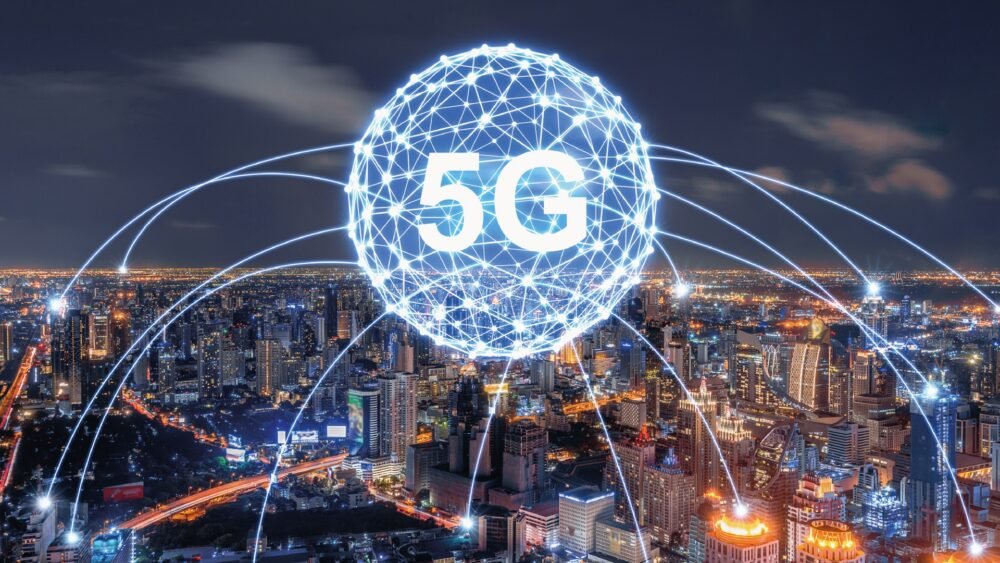The National Economic Research Associates Inc. (NERA), a U.S.-based international consultancy firm engaged to advise on Pakistan’s upcoming spectrum auction, has supported telecom operators’ demands for reforms. These include introducing extended payment terms, setting reasonable reserve prices, and shifting to rupee-based pricing to ensure a successful 5G auction in the country.
NERA cautioned that excessively high spectrum prices could reduce competition by driving out players, which would negatively impact innovation, increase consumer costs, and lead to other unfavorable outcomes. During a presentation at the National Broadband Network Forum 2024, NERA’s Managing Director emphasized that lower spectrum prices could result in higher long-term government revenues, despite a potential short-term dip.
Pakistan’s Spectrum Challenges
The consultancy highlighted that Pakistan is one of the most spectrum-starved mobile markets globally. According to the GSMA Mobile Connectivity Index 2023, Pakistan ranks the lowest in South Asia for spectrum allocation. NERA identified several factors contributing to this issue, including:
- Auction Delays: Spectrum auctions have often been postponed.
- High Base Prices: Minimum spectrum prices have been set too high.
- Unfavorable Terms: In the 2014 auction, operators were required to purchase less desirable spectrum (2100 MHz) to qualify for the more sought-after 1800 MHz spectrum.
- Unused Reserved Spectrum: Spectrum reserved for new entrants, who never entered the market, left 30% of the offered spectrum unsold.
- Dollar-Pegged Pricing: Spectrum prices tied to the U.S. dollar have become unaffordable due to the Pakistani rupee’s devaluation. Since the last auction in 2021, the exchange rate has risen from Rs. 163 to Rs. 278 per dollar, a 70% increase.
- Weak Mobile Sector: Limited demand for mobile services and low willingness to pay have further discouraged investment.
The NERA official stressed that pricing is a recurring issue across these challenges.
Spectrum Pricing and Government Revenue
NERA underscored the trade-off governments face between short-term revenue from high spectrum prices and the long-term economic benefits of a robust telecommunications sector. The consultancy argued that sustainable spectrum pricing would not only foster competition and innovation but also generate higher government revenues in the long run.
Infrastructure and Smartphone Adoption
The consultancy also highlighted the need for infrastructure improvements and smartphone adoption to support 4G and 5G networks. Currently, only 15% of Pakistan’s 55,000 mobile towers use fiber optic backhaul, with the majority relying on microwave backhaul. Fiber optic networks, which offer superior capacity and reliability, are essential for modern telecommunications. NERA recommended creating incentives for investment in fiber optic infrastructure and easing deployment through government support, such as streamlined right-of-way (ROW) policies.
On the smartphone front, NERA noted that while 62% of Pakistan’s population owned smartphones by the end of 2023, only 1% of devices were 5G-capable. High smartphone prices, driven by inflation and import taxes, remain a barrier to adoption. Accelerating the use of 4G and 5G-capable devices is critical for maximizing the economic benefits of digital connectivity.
Recommendations for the 2025 Spectrum Auction
To ensure the success of the 2025 spectrum auction, NERA proposed several key measures:
- Reasonable Reserve Prices: Spectrum prices should reflect market realities and align with practices in countries like Indonesia and Bangladesh.
- Rupee-Based Pricing: Shifting to rupee-based pricing would better match telecom sector revenues and costs, reducing the impact of currency fluctuations.
- Extended Payment Terms: Operators should be given more time to pay for spectrum, as seen in markets like Vietnam and Indonesia.
- Release of Additional Spectrum: The full 190 MHz at 2600 MHz, including 140 MHz currently under litigation, should be made available to meet demand for mid-band spectrum.
- Market Certainty: Decisions regarding the number of telecom operators, particularly in light of proposed mergers, should be finalized promptly.
NERA also emphasized the importance of infrastructure sharing, following the federal government’s approval of the Telecom Infrastructure Sharing Framework in November 2023. This framework allows operators to share both active and passive infrastructure, promoting sector profitability and affordability.










